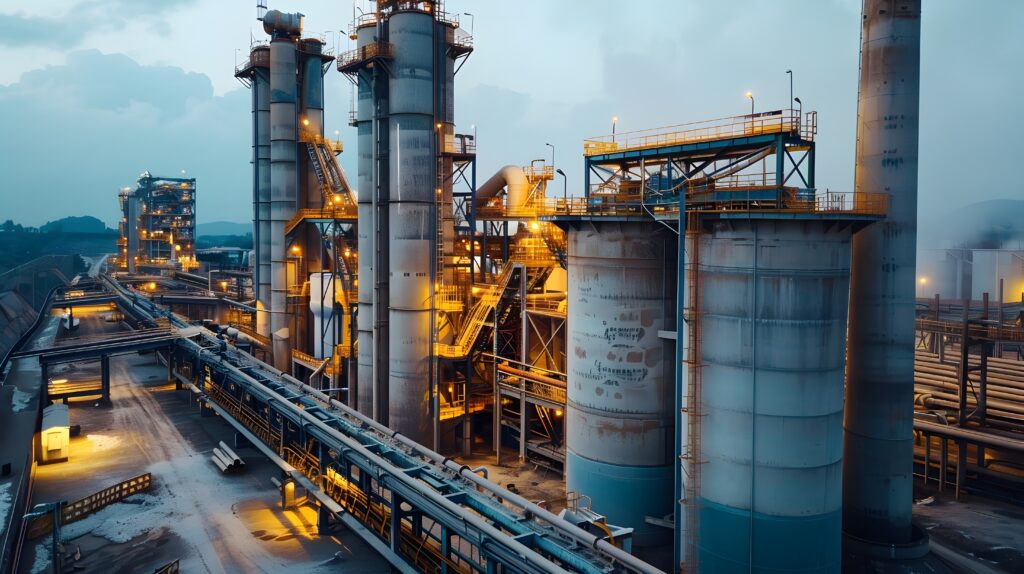Coal and steel industry
Since 2002, significant cost savings have been achieved in material- and energy-intensive
Commissioning achieved through prior virtual commissioning with WinMOD.
Areas of application can be found in all bulk material-based industries such as mining, steel and cement production, or other mass-intensive building material industries.
Since these typically robust mining/transport/production processes involve very large quantities of solid materials (bulk goods), their processes are also equipped with equally robust instrumentation technology. Measurements are not taken in kilograms, but in tonnes and, of course, more accurately if necessary. Due to the robust conditions, it is also not possible to take measurements at every point.
With its real-time base library, WinMOD offers functionalities that enable the simulation of these material flows (bulk solids). The combination of these functionalities is made available in ready-made process function libraries based on them.
Virtual commissioning (VC) with WinMOD enables the simulation of any material quantities in all conceivable operating situations, as well as possible malfunctions, creating the basis for extreme time and cost savings compared to commissioning real plants without VC.

Further process automation solutions
Typical processes that carry out continuous or batch conversion of substances.
They are divided into main and auxiliary processes.
The aim is the economical and safe fabrication of basic materials or specialised products for all industrial sectors.
Similar production processes are used as in the chemical/pharmaceutical industry, but the core here is the use of microorganisms, cell cultures or enzymes for the fabrication of products.
In future, it will be used in various areas such as pharmaceuticals, green energy and green chemistry.
The focus is on processing, preserving and refining agricultural and raw materials. Typical processes include material- and energy-oriented product manufacturing, often combined with strict quality and hygiene standards.
All processes involved in the extraction and processing of raw materials (coal, ores, salts, earths) and their conversion into basic industrial products (steel, cement, gypsum, various other building materials). These processes are usually very energy-intensive.
Refrigeration machines for cooling and system components for cooling distribution and utilisation are a key factor in both industrial plants and building automation.
Energy generation plants based on fossil fuels (coal, gas, oil), nuclear power plants and increasingly promising variants based on environmentally friendly resources such as hydropower, solar, wind, tidal, etc., as well as energy distribution plants, are becoming increasingly highly automated with extreme demands on their availability.
Water supply, from extraction, treatment, storage and distribution, as well as wastewater disposal, including transport, storage and treatment for environmentally sound disposal, are fundamentally important for a modern society and its industry.
Technical installations in road transport (general traffic control, tunnels, bridges), rail transport (signalling and switch systems, signal boxes, etc.) and waterway transport (locks, weirs, ship lifts)
All areas of technical building equipment such as ventilation, heating, air conditioning, security and fire protection that aim to improve energy efficiency, comfort, safety and cost-effectiveness in buildings.
General shipbuilding for civil, technical and military use, offshore installations as bases for wind farms, gas and oil production facilities, and underwater stations.